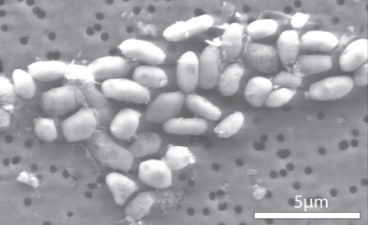PAOC Spotlights
3 Questions: Sara Seager on the discovery of a ‘new’ form of life
Fri December 3rd, 2010
Morgan Bettex for MIT News
 Yesterday, NASA announced the discovery of a bacterium that can grow on a diet of arsenic and thus doesn’t share the biological building blocks traditionally associated with all life forms. The discovery raises the possibility that organisms may exist in configurations that weren’t previously thought possible — either here on Earth or elsewhere. PAOC's Sara Seager, the Ellen Swallow Richards Professor of Planetary Science in MIT’s Department of Earth, Atmospheric and Planetary Sciences and professor in MIT’s Department of Physics, studies organisms known as extremophiles that can live in extreme environments (like the one announced this week), as part of the effort to search for life on planets outside the solar system, or exoplanets. Read this MIT News article in which Seager discusses the discovery — and what it means for finding life elsewhere in the universe.
Yesterday, NASA announced the discovery of a bacterium that can grow on a diet of arsenic and thus doesn’t share the biological building blocks traditionally associated with all life forms. The discovery raises the possibility that organisms may exist in configurations that weren’t previously thought possible — either here on Earth or elsewhere. PAOC's Sara Seager, the Ellen Swallow Richards Professor of Planetary Science in MIT’s Department of Earth, Atmospheric and Planetary Sciences and professor in MIT’s Department of Physics, studies organisms known as extremophiles that can live in extreme environments (like the one announced this week), as part of the effort to search for life on planets outside the solar system, or exoplanets. Read this MIT News article in which Seager discusses the discovery — and what it means for finding life elsewhere in the universe.